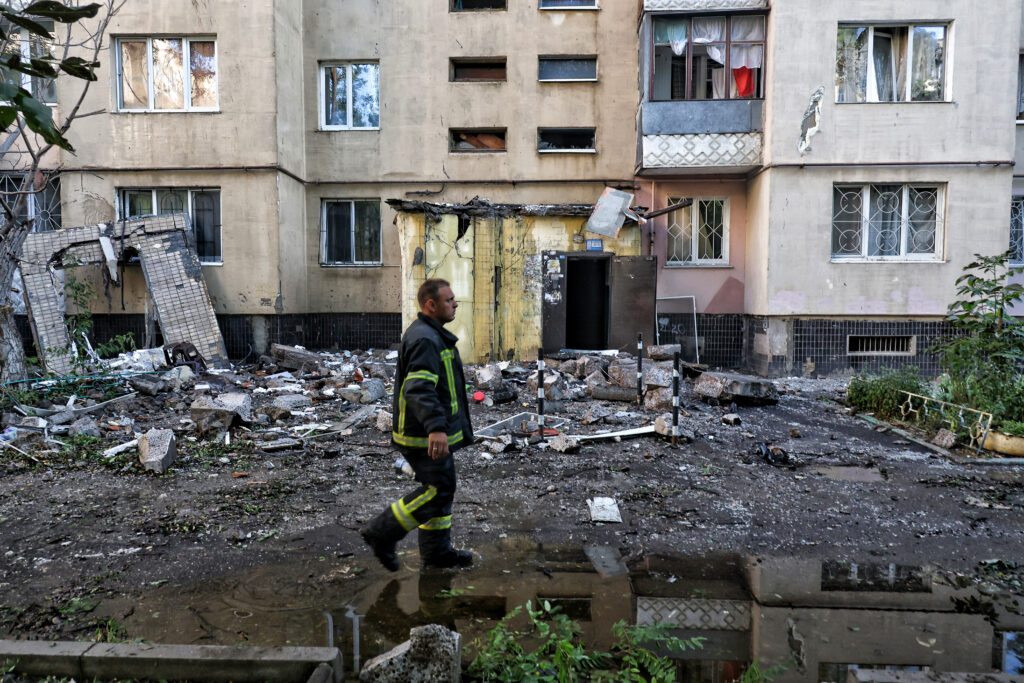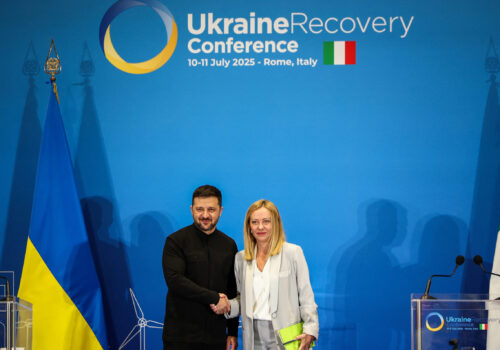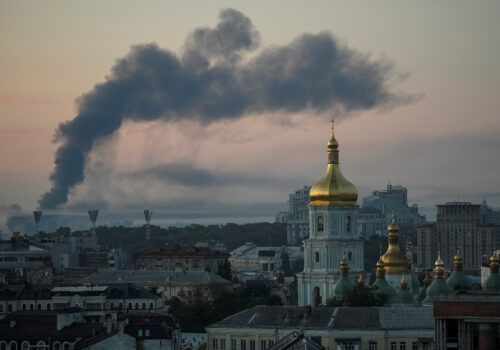The 2025 Ukraine Recovery Conference, which took place in Rome on July 10-11, was the fourth annual event of its kind and the largest to date. In attendance were around 6000 participants, including over fifty official country delegations and more than a dozen heads of government.
While the conference featured plenty of optimism, strong messaging, and ambitious plans, one key conclusion was that rebuilding Ukraine requires more than political support and good intentions. It demands concrete action, especially from the private sector.
This year’s URC in Italy made clear that the international community is paying close attention to Ukraine, with record numbers of attendees and standing room only for panels covering everything from defense tech to green energy. However, while interest is abundant, actual investment on the ground in wartime Ukraine remains scarce.
Turning attention into action is now one of the key tasks facing Ukraine. Dozens of business leaders expressed curiosity and goodwill in Rome, but few have yet taken the crucial next steps toward market entry. As the prospects of an imminent peace deal continue to fade, it is vital to replace this hesitancy with long-term strategic thinking.
Stay updated
As the world watches the Russian invasion of Ukraine unfold, UkraineAlert delivers the best Atlantic Council expert insight and analysis on Ukraine twice a week directly to your inbox.
Despite the ongoing Russian invasion, investing in Ukraine is both possible and rational. Several sectors of the Ukrainian economy are already demonstrating strong performance and rapid development. The list includes defense technologies, agriculture and food processing, construction materials, and logistics infrastructure.
While large-scale investment is limited, a number of major international corporations have invested significant amounts since 2022. Many others continue to operate in the country profitably. The message to the international business community should be that waiting for the right time is a mistake. Those who act today will reap the benefits tomorrow.
One key incentive to invest in wartime Ukraine is the possibility of gaining early access to a major future EU market. European governments and companies were prominent at the recovery conference, illustrating the fact that Ukraine’s EU integration path remains very much open and serves as an important strategic anchor.
For businesses, this means that investing now in Ukraine secures a potentially privileged position during what promises to be the next big growth phase of the European single market. Companies that seize this opportunity will be able to shape the standards, infrastructure, and networks of the future.
The private sector has a crucial role to play in Ukraine’s recovery. Kyiv cannot rely solely on humanitarian aid or budgetary support from partner nations. Enabling businesses to operate successfully in Ukraine is one of the most effective ways to boost the country’s revival and ensure sustainable growth.
With this in mind, governments seeking to support Ukraine should focus on empowering their own companies to enter the Ukrainian market. This approach delivers a win-win outcome: Ukraine benefits from jobs, taxes, and resilience, with investors gaining early access to a high-potential future EU market.
Eurasia Center events

While there are plenty of businesses interested in Ukraine, they need help managing risk. Many investors remain unsure about the various different public guarantees and insurance schemes that are currently available. Ukraine would benefit from the creation of a unified and well-communicated de-risking architecture involving international financial institutions and national governments.
One under-discussed physical barrier to investment is mobility. Many international executives are unable to visit Ukraine personally due to travel restrictions imposed by their home countries or head offices. While security is always paramount, some of these policies may be excessive. Addressing the practical issue of travel restrictions could end up unlocking essential operational capacity for global firms.
Access to reliable and up-to-date information is also vital. Many potential investors view Ukraine exclusively through the lens of war and risk, while remaining largely unaware of the rapidly evolving business climate. Greater awareness of recent transparency efforts, regulatory reforms, and investment success stories in wartime Ukraine would increase confidence and generate additional interest.
Since 2022, public funding and international solidarity have helped carry Ukraine through some of the darkest moments in modern European history. Moving to the next stage in national recovery will require entrepreneurial leadership.
In order to achieve this, Ukraine must ensure a transparent and level playing field for businesses. Anyone preparing to enter the Ukrainian market must have full confidence that their investments will be secure and their rights protected. Meanwhile, international companies need to move beyond expressions of support and commit to building operations, creating value, and taking risks.
These efforts will be futile without credible security guarantees, of course. Ukraine’s attractiveness ultimately depends on establishing a defined and enforceable framework for a secure future that will safeguard the country against further Russian aggression. This will remain the top priority for Ukraine’s partners and the wider international community.
At the same time, support for Ukraine’s recovery must extend far beyond the battlefield. The 2025 Ukraine Recovery Conference demonstrated that the country has the political backing, civic leadership, and business potential to emerge stronger than ever. This potential is encouraging but it is not enough. The time for action and investment is now.
Victor Liakh is CEO of the East Europe Foundation. Anna Derevyanko is Executive Director of the European Business Association, one of the largest business unions in Ukraine uniting more than 900 companies. Since 2022, she has also served as CEO of Global Business for Ukraine, an organization aimed at uniting international businesses in support of Ukraine.
Further reading
The views expressed in UkraineAlert are solely those of the authors and do not necessarily reflect the views of the Atlantic Council, its staff, or its supporters.

The Eurasia Center’s mission is to enhance transatlantic cooperation in promoting stability, democratic values, and prosperity in Eurasia, from Eastern Europe and Turkey in the West to the Caucasus, Russia, and Central Asia in the East.
Follow us on social media
and support our work
Image: Nina Liashonok/Ukrinform/Cover I via Reuters Connect




